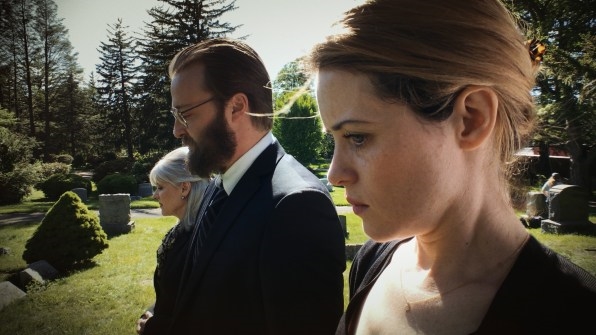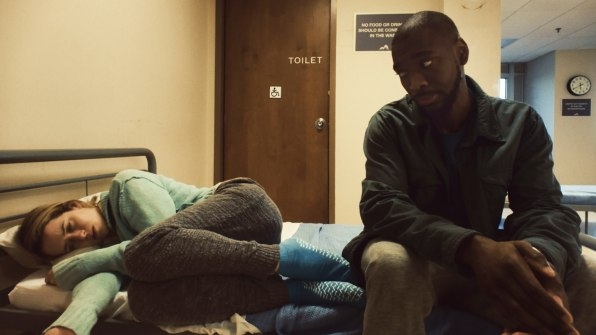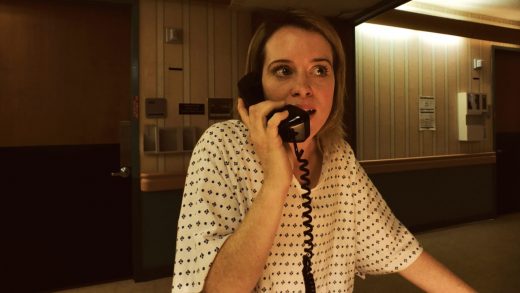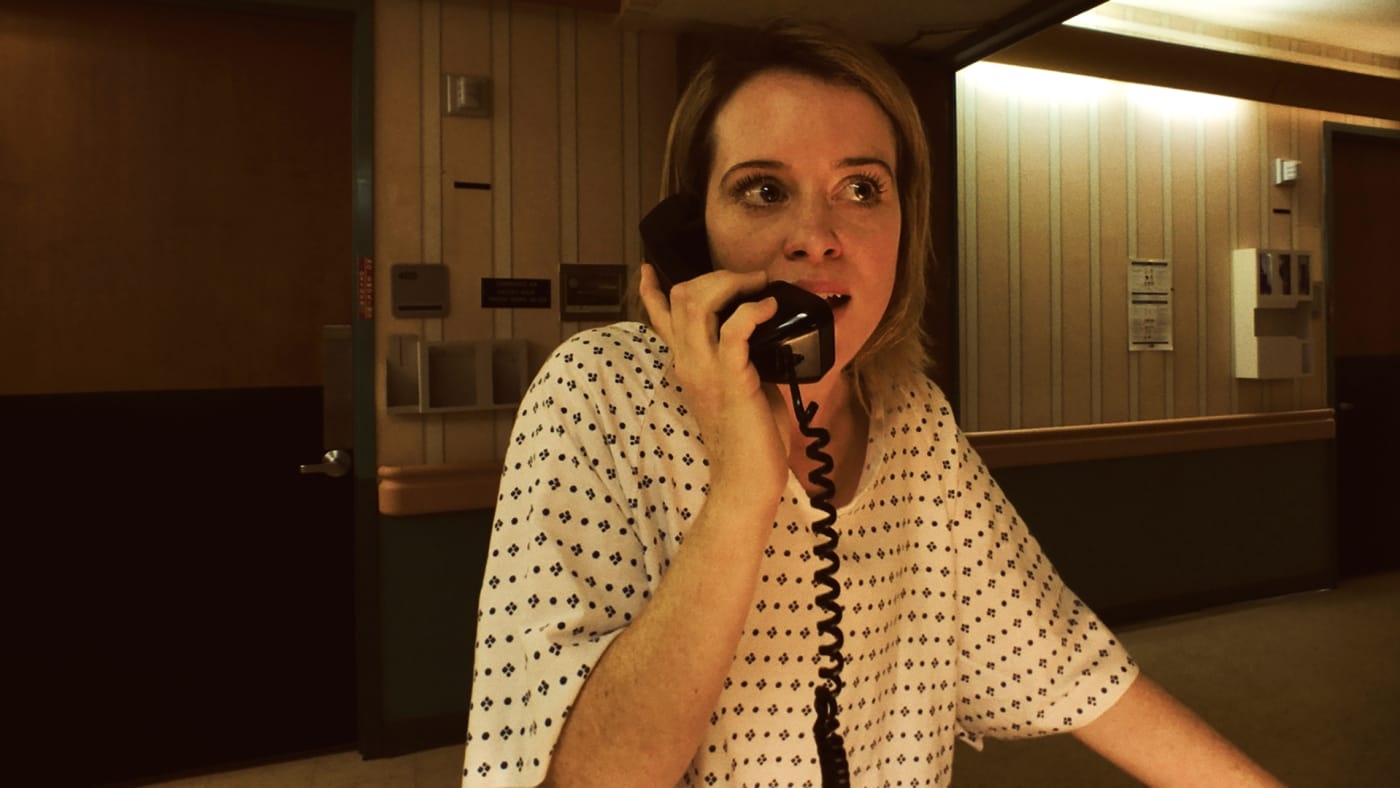“Unsane” Is A Trumpian #MeToo Nightmare For Right Now
Aside from the frequent glimpses of iPhones, there are few indicators that Steven Soderbergh’s dread-inducing new thriller, Unsane, takes place in the modern era. It could easily be set in any of the last 20 years or so. However, the response this film is bound to elicit from some viewers will be barely distinguishable from the worst aspects of day-to-day life in America right now.
Unsane tells the story of Sawyer Valentini (Claire Foy), a woman who flees her hometown of Boston for a new job—and to escape former client David Strine (Joshua Leonard), who has developed an unhealthy fixation on her. Even with a restraining order and relocation as buffer, she’s still rattled by the possibility of Strine popping up at any moment. Disturbed by her persistent paranoia, Valentini signs up for a support group for stalking victims at a local hospital. Once she’s signed the papers, though, she is required to stick around for extensive further evaluation. Sawyer is now more or less a prisoner in a psychiatric ward. When one of the attendants in the ward appears to be David Strine himself, she begins to wonder whether she’s the victim of some elaborate form of psychological terrorism, or if she’s losing her mind.

Although partly a commentary on the way hospitals are incentivized to milk patients’ insurance, Unsane is not explicitly political. Nevertheless, the film still perfectly captures both the visceral post-election horror of this should not be happening, and the trauma exposed by the #MeToo movement.
Sawyer Valentini is being gaslit. Obviously, she shouldn’t be stuck in a psych ward against her will, but everyone around her in a position of power disagrees. Valentini’s natural reaction to her new situation is kicking, screaming resistance, which only gives the people in charge further justification for keeping her locked up. It’s similar to the way that early protestors were branded by conservative pundits as victims of Trump Derangement Syndrome, rather than rationally agitated. Watching Valentini’s attendants rebuff her insistence that there’s been a mistake also echoes what it was like to see People magazine put out a soft-focus Trump cover days after the election, or read an Oprah Winfrey tweet about giving him a chance. It’s a singular feeling to know that your house is on fire and also know that millions of other people think the fire is actually helping.

The longer Valentini is stuck in the hospital, the more harrowing her ordeal. She meets with the top-ranking psychologist, the glib Dr. Hawthorne (Gibson Frazier), who is either too jaded to truly consider our protagonist is here by mistake, or he’s in on the scam. She meets with the top-ranking hospital administrator, Ashley Brighthouse (Aimee Mullins), who aggressively stonewalls her as if she’s got a PhD in Sarah Huckabee Sanders. Valentini’s inability to get through to these people should be familiar to anyone in a red state who knows their representative’s number by heart, but can’t get them to vote against a healthcare bill that disproportionately helps the wealthiest people in America (and so many other policies that seem like no-brainers.)
Unsane was written in early 2017 and filmed over the summer, so perhaps some of the Trumpian elements slipped in subliminally. The movie was wrapped by last October, though, so it anticipated Harvey Weinstein’s downfall ushering in the #MeToo movement. Then again, Trump was already an admitted sexual predator with at least 19 accusers at the time of his election, so the topic was already in the air as the film was being written. Either way, this film crystallizes the terror of suffering at the hands of an abuser and then not being believed about it.
Even before Valentini is restricted to the hospital, the film drives home the destructive impact an abuser can have on his victim’s life. She has a hard time trusting anyone in the wake of Strine’s obsession, and she’s always looking over both shoulders. All those op-eds about how the #MeToo movement is a witch hunt tend to minimize the psychological damage a predator can inflict. They also ignore the righteous anger that comes from people doubting your account. Later in Unsane, nobody at the hospital believes Valentini when she accuses the attendant of being her abuser. He’s one of their best attendants, after all, and she’s merely some crazy person. It’s a specific kind of agony shared by many women who have seen their abuser not only go unpunished but thrive. (For some women, he went on to become the most powerful man in the world.)
Watching Unsane is an unsettling theatrical experience, in part because of how familiar it feels. As an audience member, you’re continually frustrated; waiting for a comeuppance that may never arrive, and one that can’t possibly be as satisfying as the wait is excruciating. It’s a movie seemingly custom-designed for this moment, and perhaps a movie for the near future too. Like Valentini, many Americans sense that even if we do make it out of our current debacle, we’ll never be the same again.
(21)














